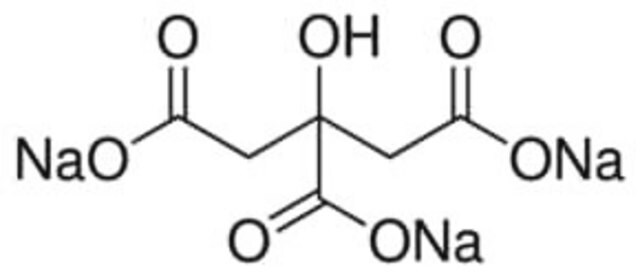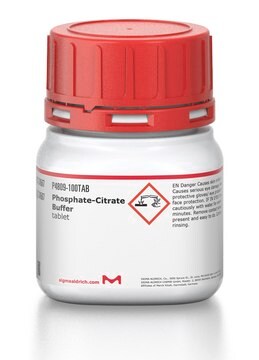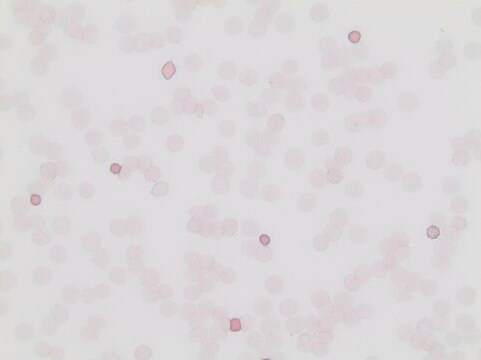C9999
Citrate Buffer, pH 6.0, 10×, Antigen Retriever
for immunohistochemistry
Sinonimo/i:
1,2,3-Propanetricarboxylic acid, 2-hydroxy-, mixt. with sodium hydroxide (Na(OH)) and sodium 2-hydroxy-1,2,3-propanetricarboxylate
About This Item
Prodotti consigliati
Livello qualitativo
Forma fisica
liquid
pH
6.0
applicazioni
hematology
histology
Temperatura di conservazione
2-8°C
Applicazioni
Nota sulla preparazione
Stoccaggio e stabilità
Altre note
Store the prepared 1′ Citrate buffer, pH 6.0, Working Solution at 2–8 °C.
Prodotti correlati
Avvertenze
Warning
Indicazioni di pericolo
Consigli di prudenza
Classi di pericolo
Aquatic Chronic 3 - Skin Sens. 1
Codice della classe di stoccaggio
12 - Non Combustible Liquids
Classe di pericolosità dell'acqua (WGK)
WGK 2
Punto d’infiammabilità (°F)
Not applicable
Punto d’infiammabilità (°C)
Not applicable
Certificati d'analisi (COA)
Cerca il Certificati d'analisi (COA) digitando il numero di lotto/batch corrispondente. I numeri di lotto o di batch sono stampati sull'etichetta dei prodotti dopo la parola ‘Lotto’ o ‘Batch’.
Possiedi già questo prodotto?
I documenti relativi ai prodotti acquistati recentemente sono disponibili nell’Archivio dei documenti.
I clienti hanno visto anche
Il team dei nostri ricercatori vanta grande esperienza in tutte le aree della ricerca quali Life Science, scienza dei materiali, sintesi chimica, cromatografia, discipline analitiche, ecc..
Contatta l'Assistenza Tecnica.










